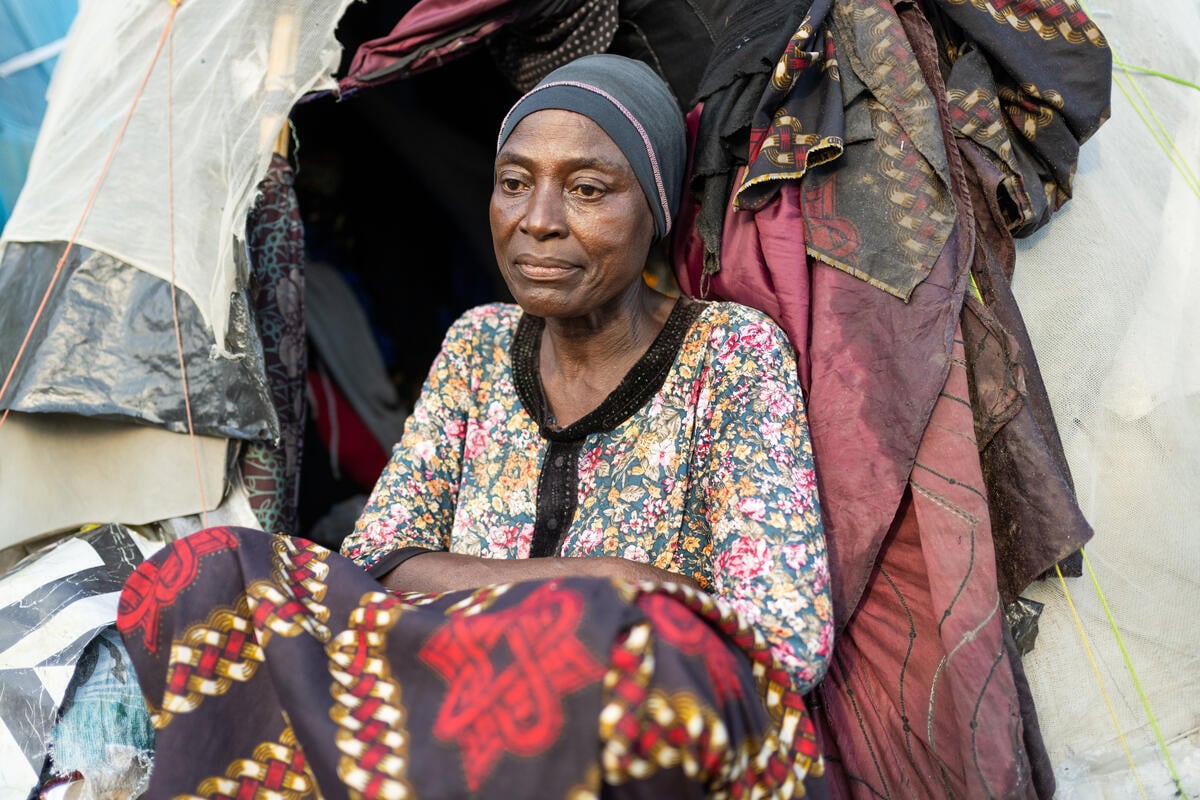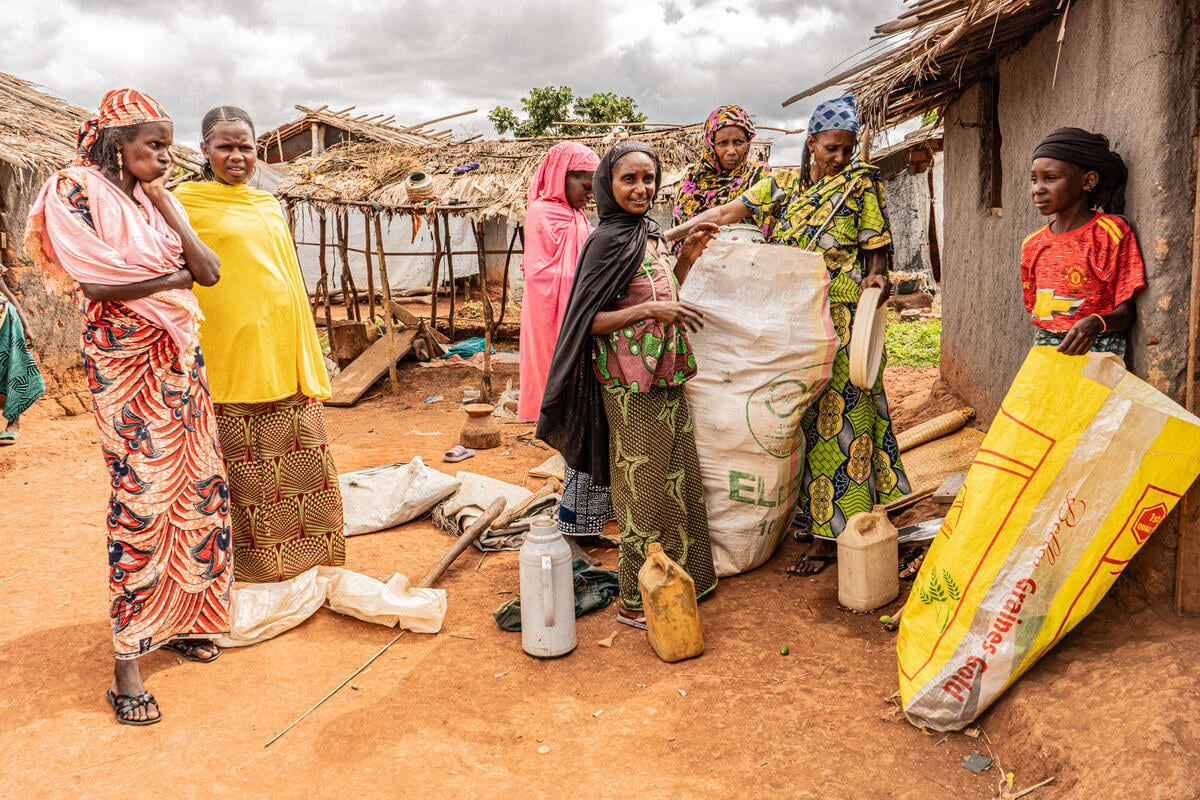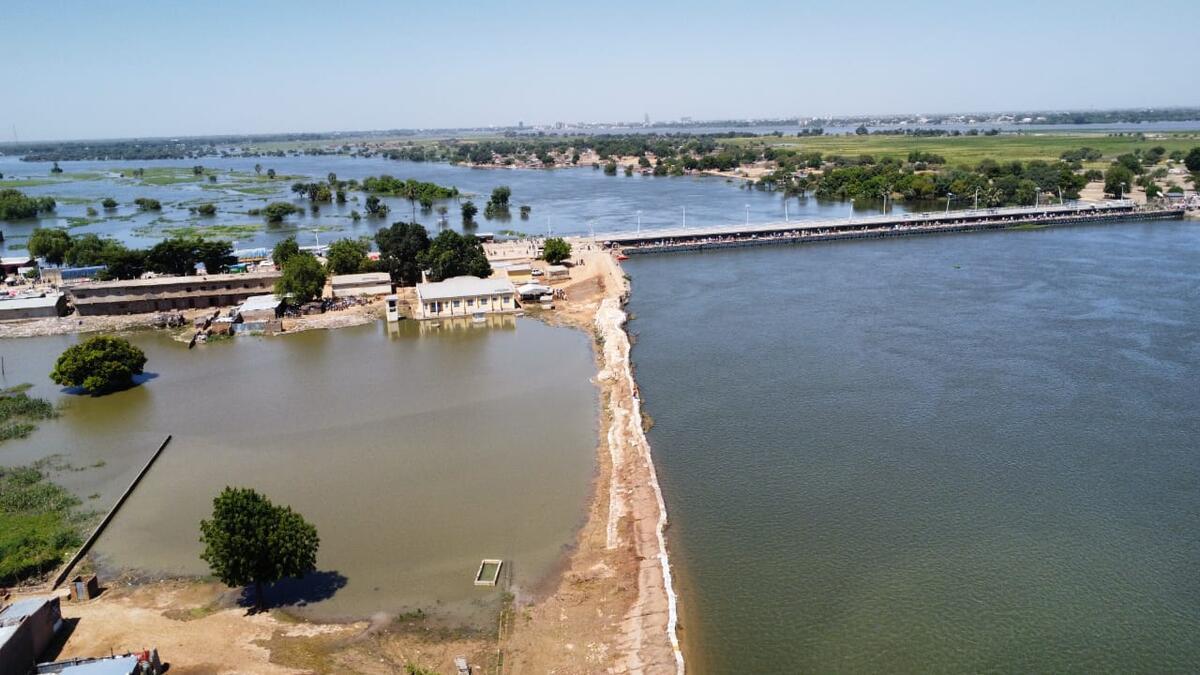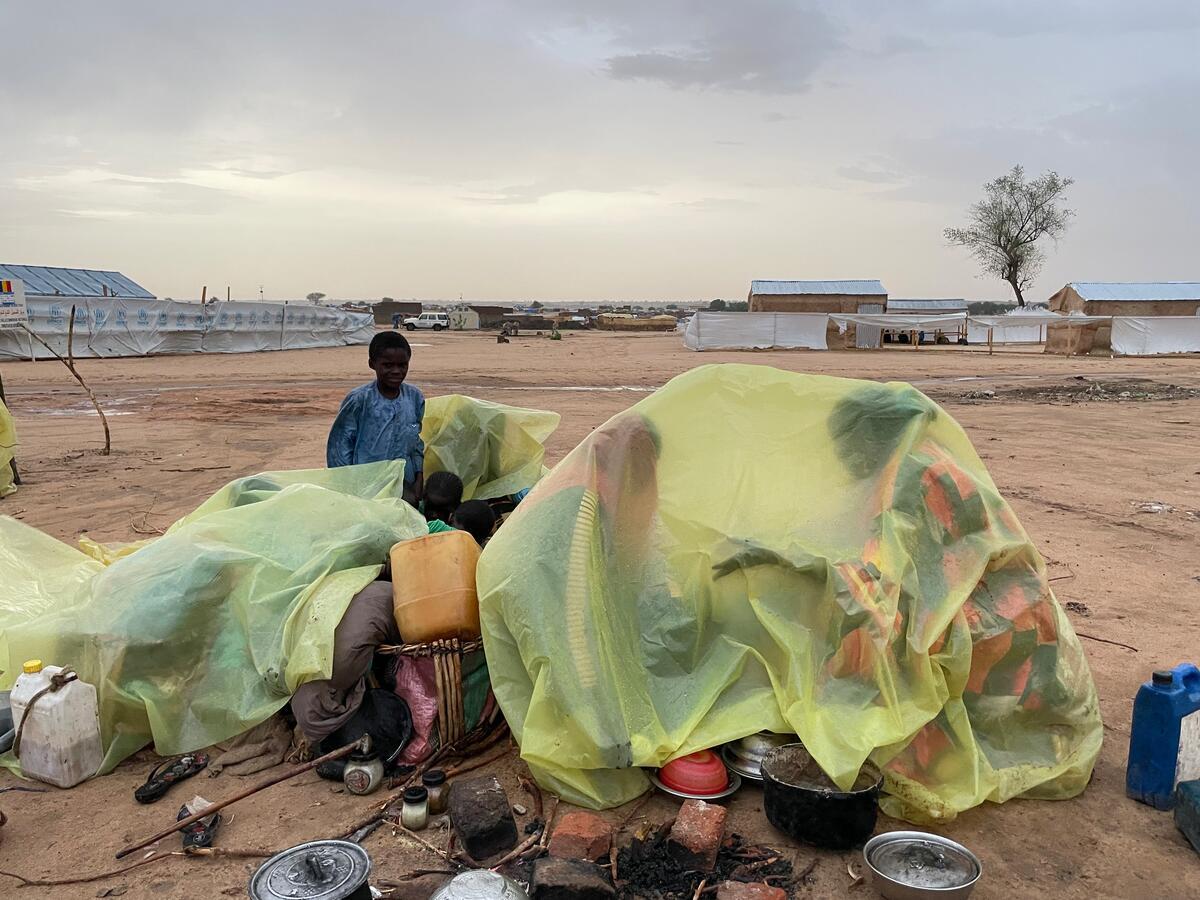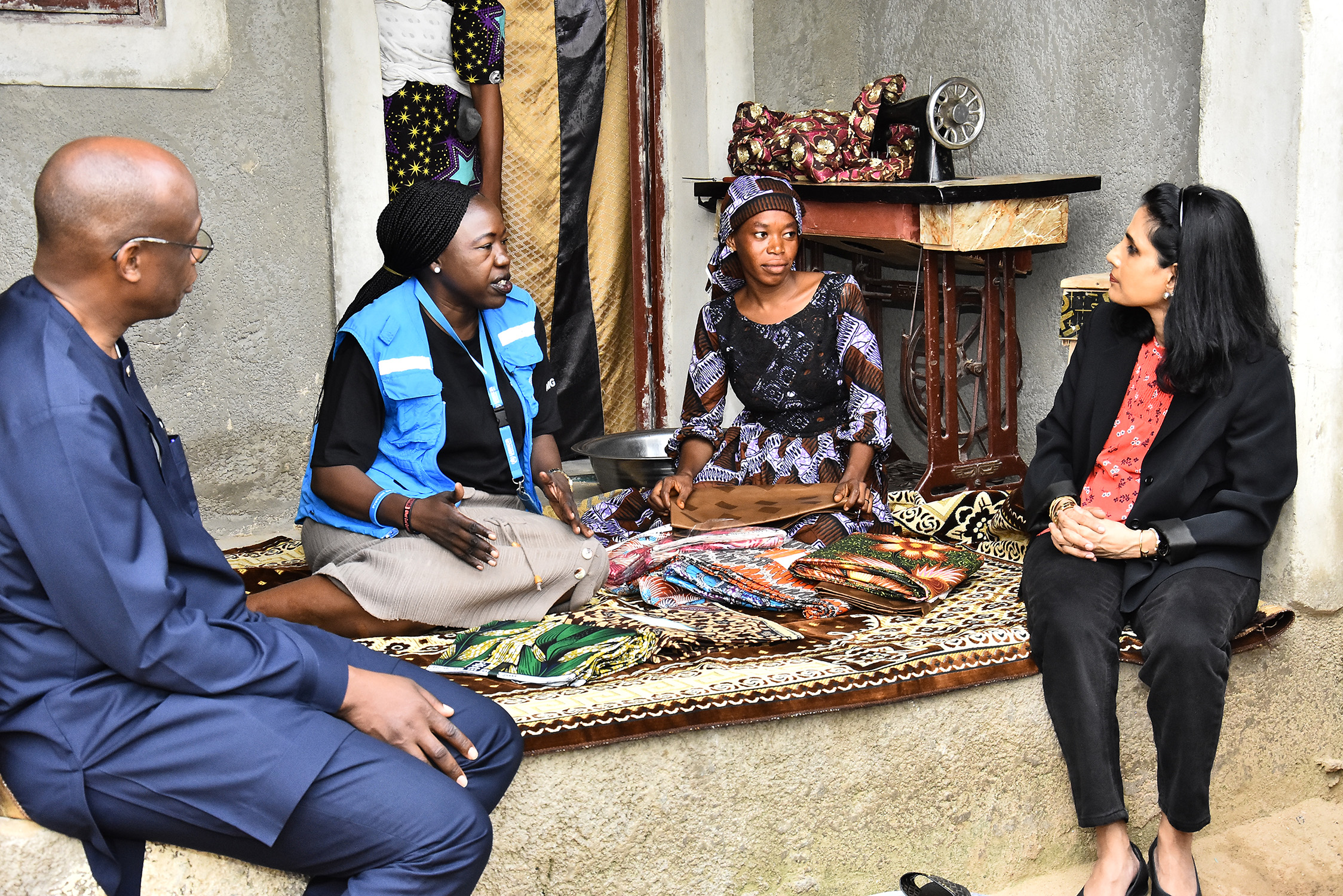Thousands of Nigerian refugees need help in remote north of Cameroon
Thousands of Nigerian refugees need help in remote north of Cameroon

Thousands of Nigerian refugees are living in difficult conditions in isolated and insecure border areas of northernmost Cameroon and urgently need assistance. UNHCR is keen to help, but the continuing Boko Haram threat is a hindrance to regular access.
A UNHCR team was earlier this month able to visit previously inaccessible border areas of Far North Region, including Fotokol, Makary and Mogode districts, where they helped pre-register more than 21,000 refugees who have been living for months with host families after fleeing deadly Boko Haram attacks in north-east Nigeria. It was the first time we have been able to visit these people and there are believed to be more. Latest UN figures put the number of out of camp refugees there at 27,000.
The team found refugees were living under tough conditions. Some are staying with destitute host families but most were sleeping in the open under trees, in makeshift shelters or on the dirt floors of dilapidated classrooms. Others were staying in abandoned villages whose residents had fled Boko Haram assaults. A number of families were separated while crossing the border to Cameroon.
Many of the out of camp refugees said they longed for security to improve in northern Nigeria so that they can return home after living with their hosts for so long in cramped conditions, and with no privacy. Some feared being sent back across the border.
In some villages, lack of health care and sanitation as well as potable water is a major concern as infrastructure has been destroyed or damaged. Basic services are non-existent in many areas. In Fotokol, for example, 25 schools were closed because of Boko Haram attacks, denying children an education.
The refugees have been almost totally dependent on the local community and many have been helping local farmers for money. Others sell goods at weekly markets. World Food Programme is distributing food in areas it can reach.
Because of the insecurity and tough conditions, UNHCR is encouraging people to relocate to Minawao camp deeper inside the region, where they can access assistance in safety. Those who do not wish to go to the camp will be given shelter and household assistance. Security permitting, hopes to return to formally register those who stay.
We would like to register all the refugees but security remains an issue in a region where Boko Haram attacks and killings continue to be reported. As a result, humanitarian access to those in need, remains difficult. The prevailing security situation has impacted UNHCR's intervention in the north of the country, where there are also some 199,000 internally displaced people.
In the past, UNHCR has encouraged refugees to head to Minawao, which is home to almost 60,000 of the 87,000 Nigerian refugees in the Far North Region of Cameroon. In October, IOM estimated the number of out-of-camp refugees to be around 27,000. Following the pre-registration exercise recently carried-out in some districts of the region, UNHCR believes that their number may be considerably higher. Those who stayed in the border area did so in the hope that they could go home soon, but they were at risk of being picked up and returned home.
UNHCR has reminded the government of its obligations under international law to provide asylum to those in need and encouraged it to maintain an open door policy for refugees. We have also offered our expertise to help screen refugee returnees to ensure they are going back voluntarily.
In Cameroon, UNHCR ensures protection and assistance to some 370,000 refugees and asylum seekers, including the Nigerians and 259,145 Central African Republic refugees. UNHCR programmes also target the internally displaced as well as host communities.
For more information on this topic, please contact:
- In Geneva: Leo Dobbs, [email protected], +41 79 883 6347
- In Cameroon: Djerassem Mbaiorem [email protected], +237 70 40 18 41 or +237 69 11 41 218

